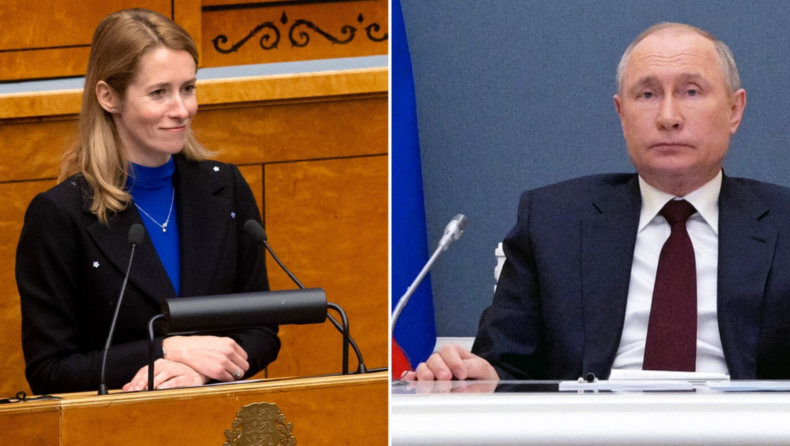According to Estonian Prime Minister Kaja Kallas, current preparations by the North Atlantic Treaty Organization (NATO) to defend the nation from a future Russian attack would result in the eradication of Estonia from the map and the destruction of Tallinn’s Old Town. Recent collaborative proposals from Estonia, Latvia, and Lithuania call for more troops and permanent division command posts than the current Enhanced Forward Presence (EFP).
Estonian Prime Minister Kaja Kallas says that NATO’s current plans to protect the country from a future Russian invasion would destroy Tallinn’s Old Town.

PM Kallas says that the alliance’s current defense plans for Estonia, Latvia, and Lithuania say that they should be occupied for 180 days before they are freed.
If you compare the sizes of Ukraine with the Baltic countries, it would imply the whole destruction of the countries and our culture, Prime Minister Kallas noted, noting that it has been more than 100 days since Russia began its full-scale invasion of Ukraine.
“Those of you who have been to the capital Tallinn and know our ancient town and the centuries of history and centuries of culture that are here — that would all be wiped off the map, including our people, our nation.”
The alliance will examine strategies for defending its eastern flank in light of Moscow’s invasion of Ukraine at a summit on June 28 in Madrid, Spain, where Kallas’ remarks were made. These strategies will include how to better secure Estonia, Latvia, and Lithuania.
The three nations are pressing for NATO to aim to defend every square inch of land from the first day, in place of the present plan of having a thousand or so foreign troops acting as a tripwire in each nation. This is especially true in light of Russian crimes in Ukraine.
Since 2016, Poland and the Baltic states have been home to four multinational Enhanced Forward Presence (EFP) battalions.
NATO is in charge of the EFP forces, and the four battalions are coordinated by a multinational divisional headquarters in Elblag, Poland.

Estonia, Latvia, and Lithuania have put together a plan that goes beyond the current Enhanced Forward Presence (eFP) and calls for more troops and permanent division command centers in each country.
Many security analysts believe that having strong soldiers and military capabilities on the ground is the only way to guarantee the security of the Baltic republics against a traditional Russian military threat. They say that the Baltic republics are too small to rely on a plan for defensive depth that would give NATO enough time to put together and send a large force to the area.
There were 350 instances of Russian aircraft entering or violating NATO airspace in 2020, with many of these events occurring in eastern Europe Baltic region.
A Modified Understanding of Security
Raul Rebane An Estonian communication expert added that Kallas’ remarks were about the NATO summit. According to Rebane, the war in Ukraine “suddenly transformed the notion of security, especially for the nations that are near to Russia.”
“The learning curve will be longer and they will detect our worry more slowly than those in Europe who are two or three nations away from it Russian President Vladimir Putin.”
According to Kusti Salm, secretary-general of the Estonian defense ministry. In an interview with the Finnish tabloid Iltalehti, he claimed that Russia didn’t consider Estonia deserving of independence.
He also said that it was still safe to live in Estonia, saying that “their most recent actions and strategic communication prove this conclusion.”
In an opinion piece for the Estonian newspaper Eesti Paevaleht, Simmo Saar, a reserve officer in the Estonian Defense Forces and a communication specialist, said in an opinion piece that NATO’s defense plans are based on the whole alliance and assume that each member of the state can defend itself against a first strike.
Everyone can now clearly see the flaws in the tripwire idea, Kallas added. The idea needs to be approved by all NATO countries, and Estonia has been trying to get its backing.













